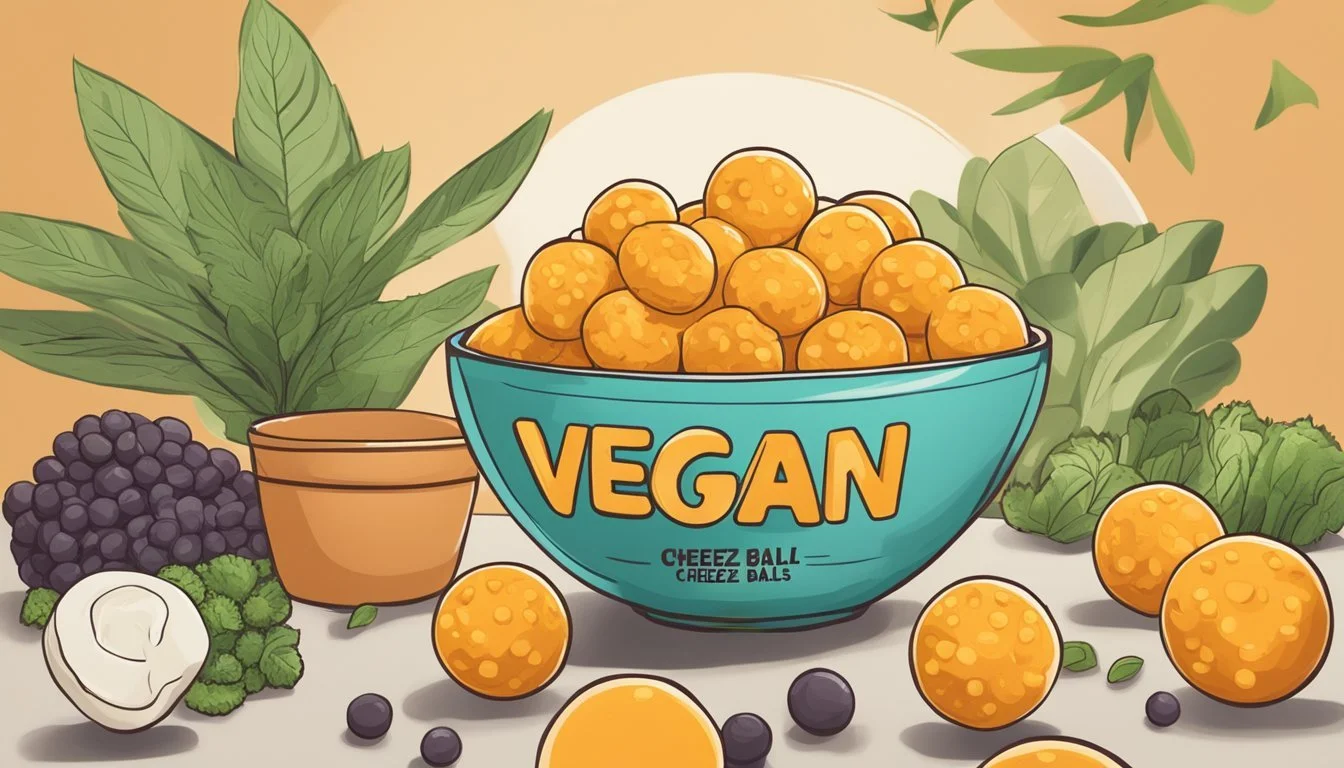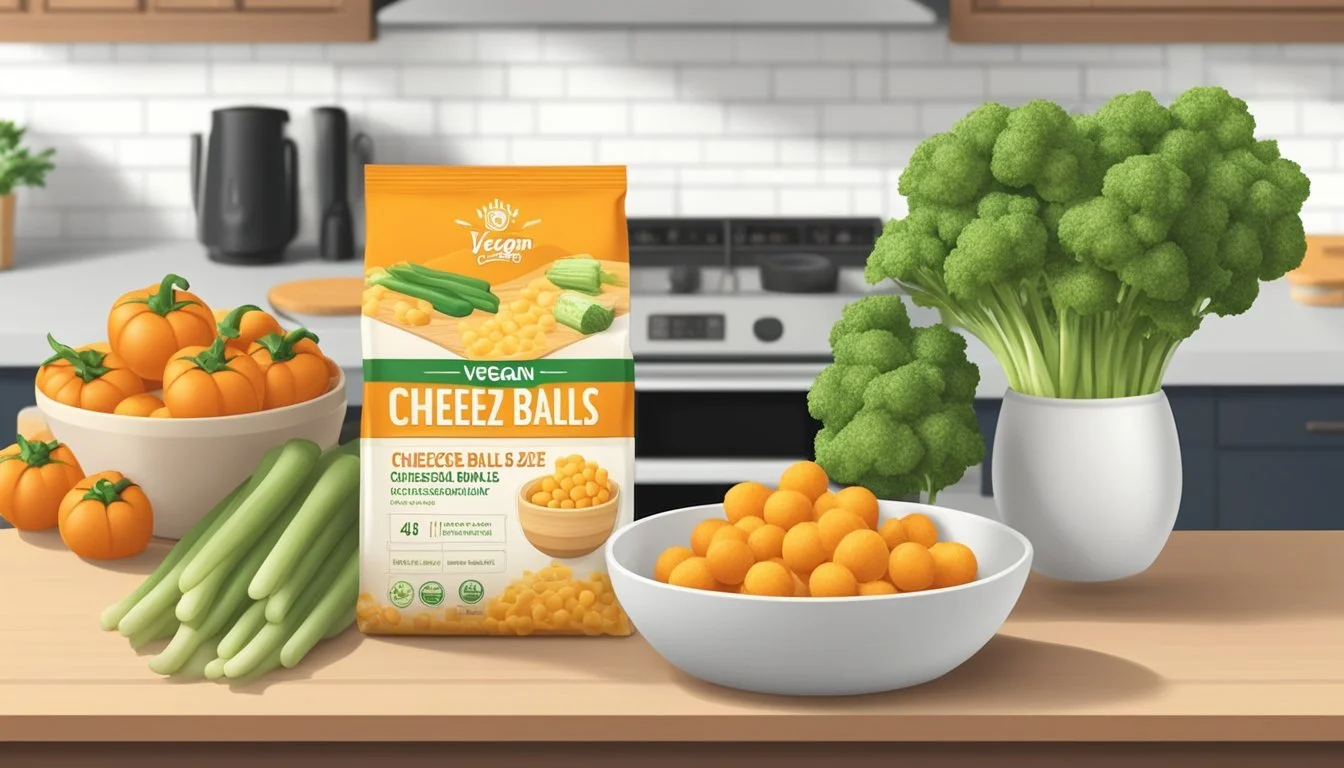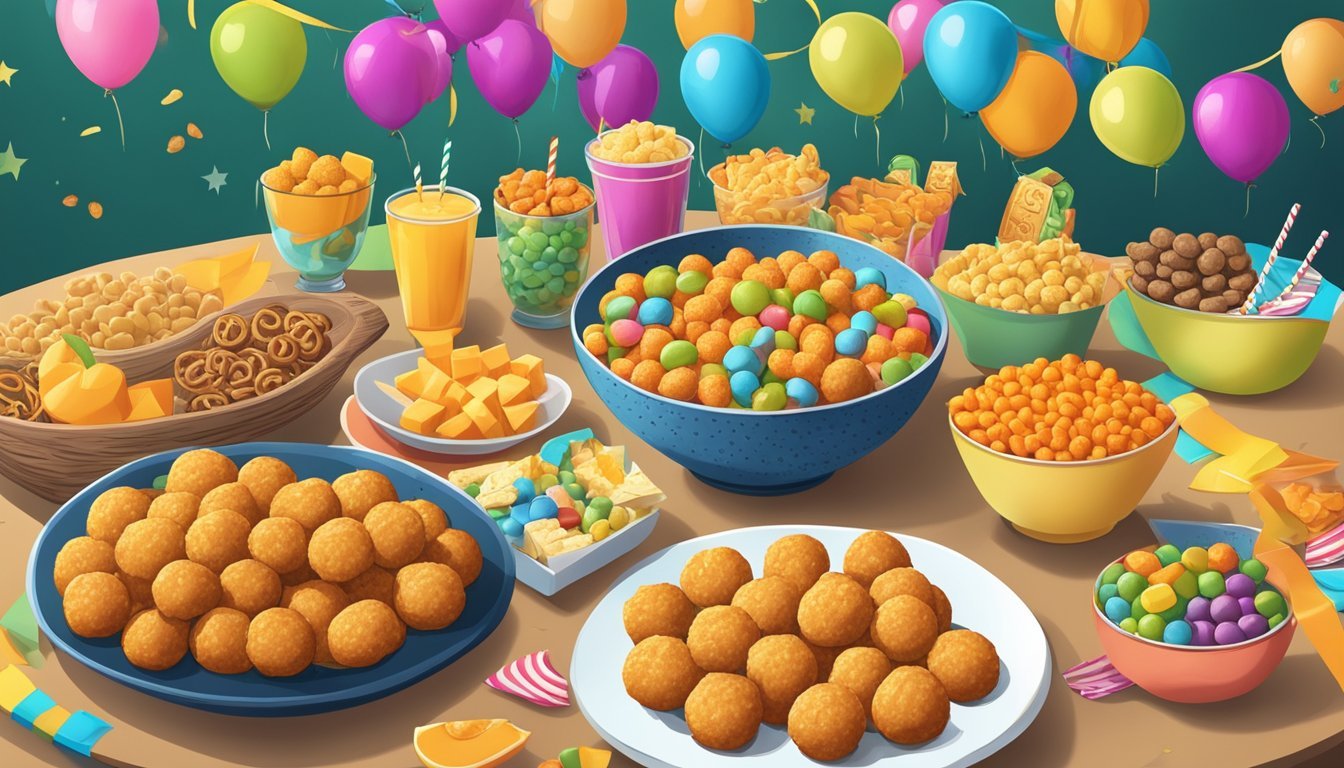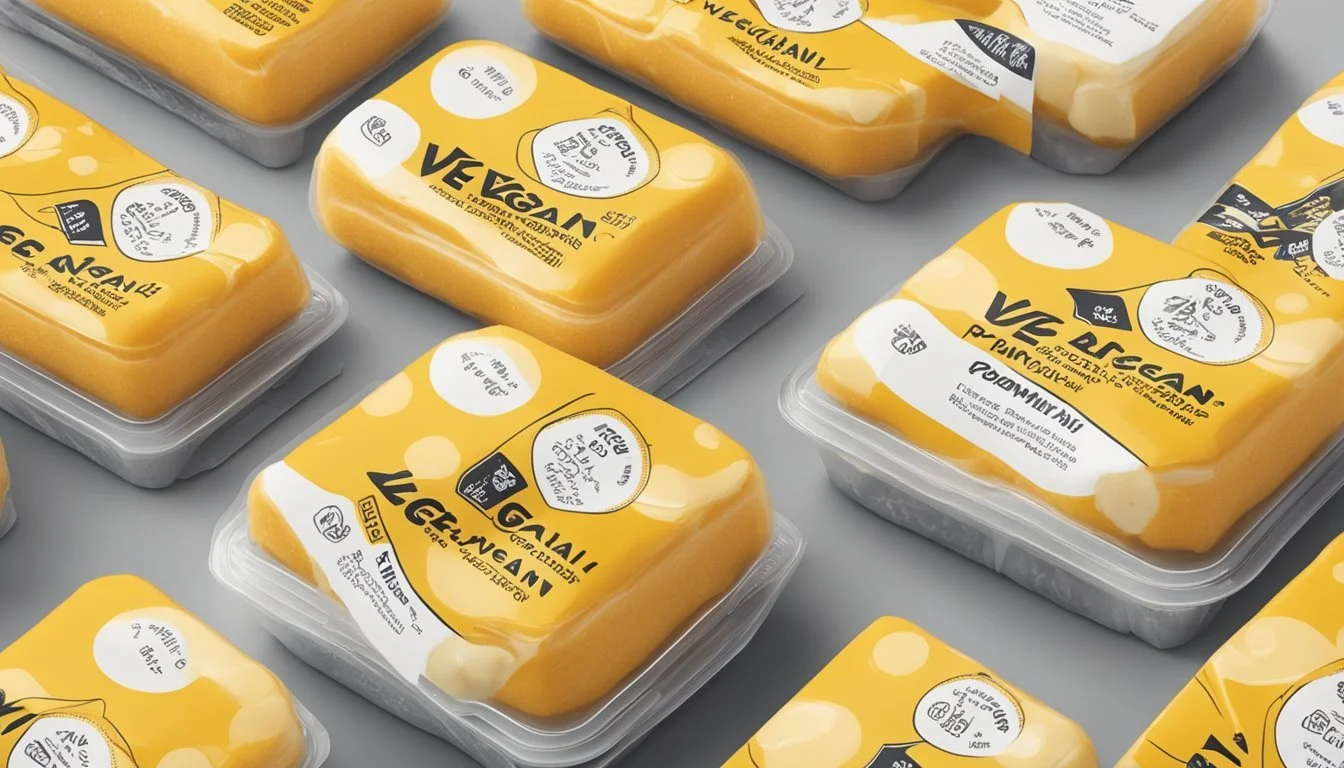Are Cheez Balls Vegan?
Unveiling Their Ingredients and Suitability
The question of whether Cheez Balls are vegan has different answers depending on the specific product in question. Traditional Cheez Balls are typically not vegan, as they are made with dairy cheese and other animal-derived ingredients. However, as demand for plant-based options surges, manufacturers are creating vegan versions of this classic snack. Vegan Cheez Balls substitute dairy with plant-based ingredients, like nuts, tofu, and nutritional yeast, to achieve a similar cheesy flavor and satisfying crunch without the use of animal products.
Consumers opting for a vegan lifestyle need to carefully examine the ingredient list of Cheez Balls to determine their suitability. While some brands may advertise their products as vegan, others might contain milk derivatives such as cheese or whey, making them unsuitable for a vegan diet. With the rise of dairy-free and vegan alternatives, those following a plant-based diet have more options now than ever before.
In the culinary homemade space, creating vegan Cheez Balls is quite straightforward and there are numerous recipes available that cater to vegan dietary restrictions. These recipes typically use a base of cashews or other nuts, combined with various seasonings to mimic the classic cheese flavor. Vegan Cheese Balls are a testament to how traditional snacks can be reinvented to cater to modern dietary choices without compromising on taste.
Understanding Veganism
Veganism extends beyond diet, encompassing a lifestyle choice that excludes all forms of exploitation of, and cruelty to, animals for food, clothing, or any other purpose.
Vegan Diet Basics
The foundational principle of a vegan diet is the exclusion of all animal products, not just meat. This includes anything derived from animals, such as dairy, eggs, and honey. Vegan diets rely solely on plant-based foods, which means they incorporate a wide variety of fruits, vegetables, legumes, grains, nuts, and seeds. Vegan diets are inherently dairy-free and often encompass broader lifestyle choices that prioritize animal welfare and environmental sustainability.
Examples of plant-based food groups include:
Fruits: apples, bananas, berries
Vegetables: leafy greens, root vegetables, cruciferous vegetables
Legumes: beans, lentils, chickpeas
Grains: rice, quinoa, oats
Nuts and seeds: almonds, flaxseeds, walnuts
Differences Between Vegan and Vegetarian
Although vegan and vegetarian diets both exclude meat, the key difference lies in the consumption of other animal products. Vegetarians typically consume dairy products and eggs, making their diet not dairy-free. On the other hand, vegans completely eliminate all animal-derived ingredients from their diet.
Vegetarian Diet includes:
Dairy products: milk, cheese, yogurt
Eggs: from chickens, quails(What wine goes well with quail?), ducks
Vegan Diet excludes:
All dairy products and eggs
Honey and other animal-derived substances
Ingredients Analysis
Analyzing the ingredients is crucial in understanding whether cheese balls are vegan. This includes reviewing common cheese ball ingredients for animal-derived products, considering vegan alternatives, and knowing how to read food labels for hidden animal-based contents.
Common Cheese Balls Ingredients
Traditional cheese balls consist mainly of dairy-based cheese and may contain butter, cream, or eggs as binding agents, which are not vegan. They often have spices, herbs, and nuts for added flavor. A standard cheese ball's ingredients invariably disqualify it from being vegan due to the presence of animal-derived cheese and other dairy products.
Evaluating Vegan Alternatives
Vegan cheese balls use plant-based ingredients like vegan cream cheese, cashews, almonds, tofu, and coconut oil as substitutes.
Cashews: Often soaked and blended to create a creamy texture.
Tofu: Provides a cheese-like consistency and increases protein content.
Almond: Adds a nutty flavor and texture, used either whole or as almond flour.
Coconut oil: Serves as a fat source, which helps to solidify the cheese ball when chilled.
Vegan cream cheese: Available commercially or homemade, serves as a base for many recipes.
Substitutions must mimic the taste, texture, and melting properties of traditional cheese while maintaining a lower sodium level compared to regular cheese.
Understanding Food Labels
To ensure that cheese balls are vegan, one must scrutinize food labels for non-vegan ingredients or additives. Many products may seem vegan at first glance but contain animal-derived ingredients such as casein or whey. It also helps to look for certifications like "Certified Vegan" or similar endorsements, indicating the product meets strict vegan standards. Labels often list ingredients in descending order by weight, so those at the beginning of the list are present in higher quantities than those later on.
Health Aspects
When examining the health aspects of Cheez Balls, especially vegan varieties, it is crucial to consider both the nutritional makeup and the potential health benefits associated with the plant-based ingredients used.
Nutritional Profile of Cheese Balls
Typically, cheese balls, including those that are vegan, contain a mix of carbohydrates, protein, and fats. The nutritional content can vary widely based on the specific recipe and brand. Vegan cheese balls can be formulated to reduce saturated fats and eliminate cholesterol, often found in traditional cheese balls. However, attention to the nutritional table is necessary to understand the product's full impact on one's diet.
Nutrient Amount Calories Varies Carbohydrates Varies (commonly includes starches) Protein Varies (possibly containing plant proteins) Fat Varies (may use oils and fat substitutes) Saturated Fat Generally lower than dairy versions Fiber Varies (depends on ingredients like nuts or seeds) Sugar Minimal (unless added for flavor) Potassium Dependent on ingredients used Calcium Often fortified Iron Dependent on ingredients used
Health Benefits of Vegan Ingredients
Vegan cheese balls often incorporate a variety of plant-based ingredients which come with their own set of health benefits. Nutritional yeast is a common component that not only bestows a cheesy flavor but also provides protein, vitamins, particularly B-vitamins, and minerals such as iron and potassium. Nuts or seeds, which may serve as a base for vegan cheese balls, contribute healthy fats, fiber, and additional protein. Some vegan cheese balls are fortified with calcium to match the nutrient profile more closely to that of dairy-based cheese.
Making a Vegan Cheese Ball
Crafting a vegan cheese ball is a straightforward process that results in a delectable appetizer suited for various occasions. Essential to this preparation are vegan cream cheese and a choice of mix-ins such as herbs and nuts to enhance the flavor profile.
Vegan Cheese Ball Recipe Step-by-Step
Begin by softening vegan cream cheese to ensure it's easily mixable.
Process the vegan cheese, adding in salt and any aromatics like onion or garlic powder if desired, until the mixture becomes homogeneous.
Incorporate herbs such as basil or chives for freshness, along with the vegan cheese, into the processor until well combined.
If including nuts, toast the pecans or other nuts to bring out a rich, nutty essence and fold into the mix.
Shape the mixture into a ball using either cling film or a cloth, twisting tightly to ensure it holds its shape.
Refrigerate the cheese ball for a few hours, typically 3-4, but up to overnight to firm up before serving.
Creative Flavor Enhancements
Herbs: Fresh herbs like rosemary, dill, or basil can offer a burst of flavor, especially when chopped finely and mixed in thoroughly.
Nuts: Crushed or chopped nuts such as pecans, almonds, or walnuts provide a crunchy texture.
Cranberries: Dried cranberries deliver a tart and sweet contrast that can brighten up the taste.
Vegan Queso: For a spicy twist, incorporating vegan queso into the mixture could introduce a zesty element.
Note: Adjustments in flavor components should be done to taste, and it's recommended to sample as you go.
Serving Suggestions
A vegan cheese ball can be enjoyed in numerous ways—pair it with a variety of crackers, sliced baguette, or vegetable sticks. To elevate its presentation, one might consider rolling the set cheese ball in a mixture of chopped cranberries and finely minced rosemary before serving to add visual appeal and an extra layer of flavor. It serves as a focal point for appetizer platters, especially when considering a spread that accommodates those with dairy-free diets.
Storage and Preparation Tips
Storing and preparing vegan cheese balls properly ensures they maintain their flavor and texture. Proper storage also extends their shelf life, while advance preparation can facilitate serving for events or personal enjoyment.
How to Store Vegan Cheese Balls
After making a vegan cheese ball, it should be wrapped tightly in plastic wrap or stored in an airtight container to prevent it from drying out. It can be stored in the fridge for up to 7-10 days. For longer storage, one might consider freezing it, although this could affect its texture upon thawing. If freezing is preferred, ensure the cheese ball is first wrapped in plastic to reduce freezer burn and then placed in a sealable bag.
Preparing Cheese Balls Ahead of Time
Preparing vegan cheese balls ahead of time can be a convenient approach, especially for gatherings. They can be made several days in advance and kept refrigerated. If the recipe allows, one can prepare the cheese mixture and form it into a ball without applying the outer coating. The topping should be added just before serving to maintain its texture and prevent sogginess. It's crucial to keep the mixture covered and soft, which allows for easier coating of the toppings when it's time to serve.
Accompanying Foods
When serving vegan cheese balls as an appetizer, the accompanying foods are crucial in enhancing the overall dining experience. They offer an array of textures and flavors that can complement the richness of the cheese ball.
Best Crackers and Veggies for Cheese Balls
Crackers serve as the foundation for any cheese ball, adding necessary crunch and a base that allows the flavors of the vegan cheese to shine. It is essential to choose crackers that are sturdy enough to hold a portion of the cheese ball without breaking.
Crackers:
Whole-grain crackers for a hearty texture
Water crackers for a light, crisp contrast
Gluten-free options for inclusive dining
Veggies provide a fresh counterpoint to the creaminess of the cheese ball. Their natural crunch and earthy flavors balance the dish.
Veggies:
Carrot sticks for sweetness
Celery for a subtle, refreshing flavor
Cucumber slices for a hydrating crunch
Bell pepper strips as a colorful, sweet option
Dips and Spreads to Complement the Flavor
Dips can elevate the vegan cheese ball by adding layers of flavors or a creamy texture contrast. When selecting dips, consider those that will enhance and not overpower the main flavors of the cheese ball.
Dips:
Hummus for a creamy, garlicky note
Vegan tzatziki for a tangy, herb-infused option
Salsa for a spicy kick
Guacamole for richness and a hint of lime
Tortilla chips are another excellent vehicle for cheese balls and dips alike. They add a salty facet and are most favorable when paired with zestier vegan cheese balls.
Additional Vegan Party Ideas
When it comes to hosting a festive vegan event, whether it's a holiday celebration, a casual get-together, or a potluck, including a variety of delicious vegan appetizers (What wine goes well with appetizers?) is key. They set the tone for the meal and ensure that all guests, regardless of dietary preferences, have a plethora of options to choose from.
Other Vegan Appetizer Recipes
For those who want to make their party menu memorable, exploring a range of vegan appetizer recipes is crucial. Consider:
Stuffed Mushrooms: Filled with a savory mix of garlic, spinach, breadcrumbs, and vegan parmesan.
Bruschetta: Toasted baguette slices topped with a vibrant blend of diced tomatoes, basil, and balsamic glaze.
Spring Rolls: Packed with fresh vegetables like carrots, cabbage, and bell peppers; served with a peanut or hoisin dipping sauce.
Vegetable Tempura: Crispy, battered, and fried seasonal veggies with a savory dipping sauce.
These choices offer a diverse flavor palette that can appeal to all guests, vegan or not.
Planning a Vegan Gathering
Crafting the perfect vegan gathering hinges on more than just the food:
Invitations: Clearly indicate that the event will feature a vegan menu to set expectations.
Diversity of Dishes: Ensure a balance between hot and cold options, creamy and crispy textures, and a variety of flavors.
Labeling: Label each dish not only to highlight it's vegan, but also to inform about potential allergens like nuts or soy.
By considering these aspects, hosts can curate an inclusive and enjoyable experience for all attendees, assuring them that vegan food can be as delightful and satisfying as any other cuisine.
Shopping Guide for Vegan Products
Selecting vegan products, particularly vegan cheese alternatives, requires careful inspection of ingredients and understanding the differences between homemade and store-bought options. This guide will navigate shoppers through finding vegan cheese in stores and weigh the pros and cons of preparing it at home.
Finding Vegan Cheese in Grocery Stores
When searching for vegan cheese in grocery stores, one should focus on products labeled as vegan or plant-based. These products are typically found in the health food section or a designated vegan area. Vegan cheeses can be made from various plant sources such as nuts, soy, and root vegetables, with cashew cheese and vegan cheddar being popular choices.
Top Picks in Grocery Stores:
Cashew Cheese: Creamy texture, rich taste
Vegan Cheddar: Sharp flavor, melts well
Tip: Always read ingredient labels carefully as some products may appear vegan but contain non-vegan additives.
Homemade vs. Store-bought Options
Consumers have the choice between purchasing store-bought vegan cheese or making their own. Homemade vegan cheese often offers a fresher taste and the ability to customize flavors to one's preference.
Advantages of Homemade:
No preservatives
Control over ingredients
On the other hand, store-bought options provide convenience and sometimes a longer shelf life, which is beneficial for those with time constraints.
Consideration for Store-bought:
Convenient and quick
Consistent quality
One can opt to create their own vegan cheese using ingredients like nuts or purchase ready-made options such as cashew cheese or vegan cheddar from a grocery store. The decision hinges on personal preference for taste, convenience, and dietary considerations.
Conclusion
Cheez-It products, known for their cheesy flavor and satisfying crunch, are generally not considered vegan. They contain real cheese, which is derived from animal milk. This primary ingredient disqualifies Cheez-It crackers, including Cheez Balls, from being vegan, as they do not align with vegan principles that exclude all forms of animal exploitation and products. Therefore, consumers adhering to a vegan diet should avoid traditional Cheez-It products.
For those seeking vegan-friendly snack alternatives, the market offers various products designed to mimic the taste and texture of cheese-flavored snacks without the use of animal-derived ingredients. Ingredients such as vegan cheese, vegan buttery spreads, and various plant-based flours are commonly utilized in these alternatives to provide the desired cheese-like experience.
In assessing vegan snack options, individuals should diligently scrutinize ingredient lists to ensure they comply with vegan standards. It’s important to be wary of items that may contain hidden animal-derived ingredients that could be easily overlooked without a thorough evaluation. When in doubt, opting for products explicitly labeled as vegan is often the safest choice for those committed to a plant-based lifestyle.
The information relayed here stems from a from reliable sources and should serve as a trusted guide for consumers making informed dietary choices. While traditional Cheez-It snacks are not vegan, the availability of substitutes means vegans can still enjoy similar taste profiles without compromising their values.









